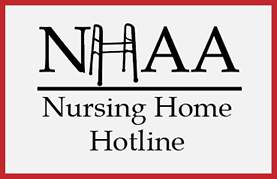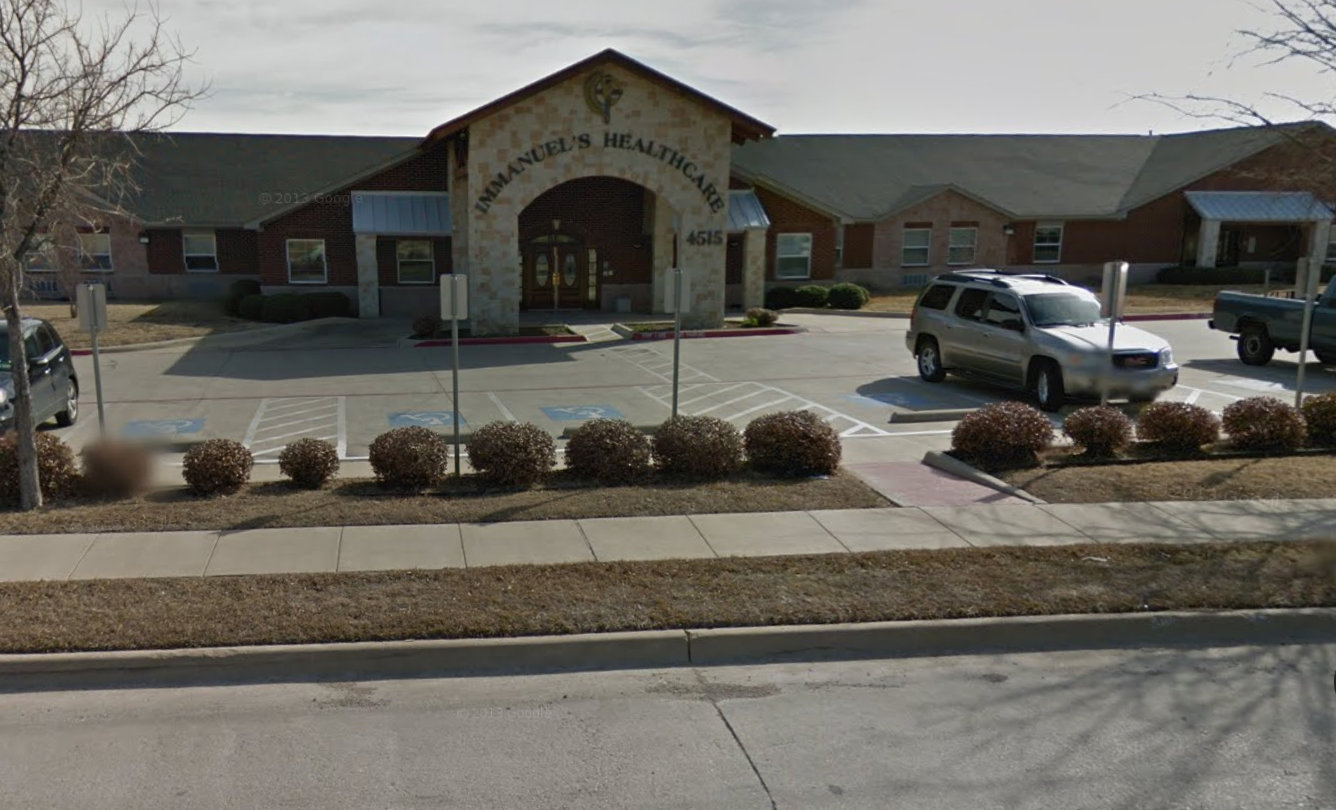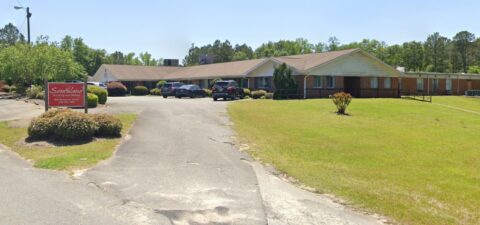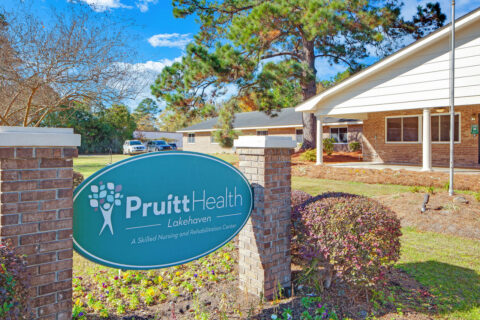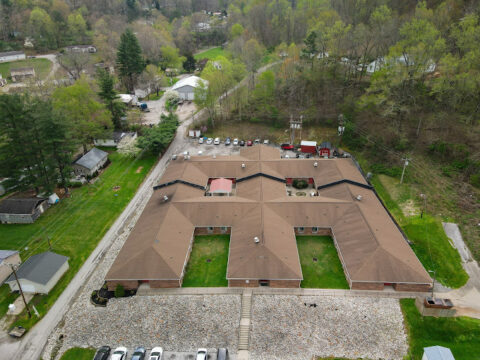Widespread Neglect, Weight Loss and Multiple Bedsores – Ft. Worth Nursing Home Cited
In The News:
IMMANUELS HEALTHCARE CENTER – Ft. Worth, Texas
Located: 4515 VILLAGE CREEK RD., FORT WORTH, TX 76119
IMMANUELS HEALTHCARE was recently cited in January 2014 by the DEPARTMENT OF HEALTH AND HUMAN SERVICES CENTERS FOR MEDICARE & MEDICAID SERVICES for the following deficiencies:
The full and complete 32 page report can be found here. The following are only highlighted portions.
Give residents proper treatment to prevent new bed (pressure) sores or heal existing bed
Level of harm – Immediate jeopardy Residents Affected – Some
Based on observation, interview and record review, the facility failed to ensure residents received the necessary treatment and services to promote healing and prevent new pressure ulcers from developing for six (Residents #8, #9, #11, #12, #13 and #16) of 16 residents reviewed for pressure ulcers. 1) Resident #9 was re-admitted to the facility on [DATE] with a pressure ulcer on her right outer leg. The staff failed to: A) Provide accurate and timely skin assessments; B) Ensure complete and accurate descriptions of pressure ulcers for continued monitoring; C) Ensure there were physician orders [REDACTED]. D) Notify the physician promptly for treatment orders; and E) Ensure care plans were initiated and carried out. 2) Resident #11 was identified with skin breakdown during a weekly head to toe skin assessment on 10/05/13, but there were no treatment orders until 10/16/13. The facility further failed to: A) Ensure the physician was notified promptly for treatment orders; B) Ensure there were physician orders [REDACTED]. C) Ensure complete and accurate descriptions of pressure ulcer for continued monitoring; D) Ensure care plans were developed timely and carried out; E) Ensure skin assessments were conducted regularly and F) Ensure weekly nursing assessments were completed correctly. 3) Resident #16 developed two Stage II pressure ulcers on her buttocks, which deteriorated to Stage III. The Wound Care Physician changed her treatment order, which the facility failed to implement. 4) Resident #13 was identified with a reddened area on her buttock on 11/21/13. The staff failed to: A) Ensure the Dietician’s recommendations were implemented; B) Ensure complete and accurate skin assessments and descriptions were obtained; C) Ensure treatments were not conducted without a physician’s orders [REDACTED]. D) Notify the physician promptly for treatment orders; and E) Ensure physician-ordered treatments were implemented. 5) Resident #8 was readmitted to the facility with pressure ulcers to both her great toes and the facility failed to: A) Provide accurate and timely skin assessments; B) Ensure complete and accurate descriptions of the pressure ulcers for continued monitoring; C) Ensure treatments were not conducted without a physician’s orders [REDACTED]. D) Notify the physician promptly for treatment orders; and E) Ensure care plans were initiated and carried out. 6) Resident #12 had a pressure area on her right lateral foot and the facility failed to: A) Provide accurate skin assessments; B) Ensure complete and accurate descriptions of the pressure ulcers for continued monitoring; C) Ensure physician-ordered treatments were implemented in a timely manner. D) Ensure LVN G conducted a thorough head to toe assessment.
Make sure that each resident gets a nutritional and well balanced diet, unless it is not possible to do so.
Level of harm – Immediate jeopardy Residents Affected – Some
Based on observation, interview, and record review, it was determined the facility failed to ensure that a resident maintained acceptable parameters of nutritional status, such as body weight for three (Resident #3, #40 and #41) of 12 residents reviewed for nutrition. 1. Resident #3 experienced a 16.3% (20.8 lbs) loss of body weight from 11/01/13 to 12/17/13. Failures included: a) Staff failed to document Resident #3’s meal intake and administer Med Pass nutritional supplement as ordered when she consumed less than 50% of her meals. b) Staff failed to accurately document Resident #3’s weight, and nursing staff was unaware of the extent of her weight loss. c) Staff failed to implement the recommendations made for Resident #3 by the Dietitian after she was consulted by the physician. d) Staff failed to notify the physician after they became aware of her 10% weight loss in two weeks until surveyor inquiry. 2) Resident #40 experienced a 5.67% (9.8 lbs) loss of body weight from 12/03/13 to 01/03/14. Failures included: a) Staff failed to record and document Resident #40’s meal intake accurately. b) Staff failed to ensure the Dietary Consultant saw the resident once she was admitted to the facility. c) Staff failed to notify the physician after they became aware of Resident #40’s 5.67% weight loss for three days. d) Staff failed to initiate a Care Plan regarding Resident #40 pocketing her food for two months. 3. Resident #41 was identified on 11/26/13 as having a 6% weight loss in 20 days. Failures included: a) Staff failed to notify the physician of the weight loss and recommendations made by the consulting dietitian. b) Staff failed to implement the recommendations made by the dietitian. An Immediate Jeopardy (IJ) was identified on 01/02/14.
These failures resulted in: – Resident #3 losing approximately 21 lbs since 11/01/13, placing her at risk for further debility, pressure sores and deterioration of her physical condition. – Placing Resident #40 at risk for continued weight loss and complications from pocketing her foods. – Placing Resident #41 at risk for continued weight loss and deterioration of her physical condition. These failures could affect any of the facility’s 75 residents placing them at risk for unplanned weight loss, extended healing time, [MEDICAL CONDITION], dehydration and fatigue.
Make sure that nurse aides show they have the skills and techniques to be able to care for residents’ needs.
Level of harm – Minimal harm or potential for actual harm Residents Affected – Some
Based on observation, interview and record review, it was determined the facility failed to ensure four CNAs (CNAs M, N, Q and R) of nine CNAs observed were able to demonstrate competency in providing proper incontinent care and used standard infection control procedures for three (Residents #3, #4 and #8) of six residents observed during incontinent care.
Immediately tell the resident, the resident’s doctor and a family member of the resident of situations (injury/decline/room, etc.) that affect the resident.
Level of harm – Immediate jeopardy Residents Affected – Many
Based on observation, interview and record review, the facility failed to immediately consult with the resident’s physician when there was a significant change in the resident’s physical status or a need to alter treatment significantly for six (Residents #2, #3, #8, #9, #11 and #13) of 21 residents reviewed for changes in condition. 1) Resident #3 experienced a 16.3% (20.8 pounds) severe weight loss from 11/01/13 to 12/17/13. Staff failed to consult with the physician after they became aware of her 10% weight loss in two weeks until after surveyor intervention. 2) Resident #9 was re-admitted to the facility on [DATE] with a pressure ulcer on her right lateral leg according to facility staff. The staff failed to notify the physician promptly for treatment orders. 3) Staff administered [MEDICATION NAME] (for blood pressure) to Resident #13 despite below normal blood pressure readings of 71/26, 109/36 and 108/58 and failed to notify the resident’s physician. They further failed to notify her physician when her evening blood pressures were 71/26, 109/36, 97/68, 88/45 and 108/58. 4) Staff identified an open pressure ulcer on Resdient #11’s coccyx and failed to consult with the physician for 12 days for treatment orders. On the 12th day, the pressure ulcer was ideentified as a Stage 3 pressure ulcer by the wound physician. 5) Resident #2 was readmitted to the facility with an indwelling urinary Foley catheter. The facility failed to notify the physician for orders for care and treatment of [REDACTED]. 6) Resident #8 was admitted to the facility with an indwelling urinary Foley catheter and failed to notify the physician for orders for care and treatment of [REDACTED]. These failures to consult the physician with a drop in blood pressure, severe weight loss, orders for an indwelling urinary catheter and for pressure ulcer treatment orders could affect any of the facility’s 75 residents, including Residents #2, #3, #8, #9, #11 and #13, and placed them at risk not having their needs met, a delay in needed medical care and treatment, the potential for deterioration in their clinical condition, increasing the length of time needed for healing, the need for hospitalization and even death. An Immediate Jeopardy (IJ) was identified on 01/02/14.
Have a program that investigates, controls and keeps infection from spreading.
Level of harm – Immediate jeopardy Residents Affected – Many
Based on observation, interview and record review, it was determined the facility failed to establish and maintain an Infection Control Program designed to provide a safe, sanitary and comfortable environment and to help prevent the development and transmission of disease and infection for nine (Residents #2, #3, #4, #8, #22, #29, #35, #36, #37, and #38) of 24 residents reviewed for infection control.
Develop a complete care plan that meets all of a resident’s needs, with timetables and actions that can be measured
Level of harm – Minimal harm or potential for actual harm Residents Affected – Many
Based on interview and record review, the facility failed to develop a comprehensive care plan, which included measurable objectives and timetables to meet a resident’s medical, nursing, and mental and psychosocial needs that are identified in the comprehensive assessment and describe the services that are to be furnished to attain or maintain the resident’s highest practicable physical, mental and psychosocial well-being for 11 (Residents #2, #4, #9, #13, #16, #29, #35, #36, #37, #38 and #40) of 40 residents reviewed for care plans.
Personal Note from NHAA Advocates: NHAA shares with all the families of loved ones who are confined to nursing homes the pain and anguish of putting them in the care of someone else. We expect our loved ones to be treated with dignity and honor in the homes we place them. We cannot emphasize enough to family members of nursing home residents; frequent visits are essential to our loved ones’ well-being and safety. This nursing home and many others across the country are cited for abuse and neglect.
You can make a difference. If you have a loved one living in this nursing home or any other nursing home where you suspect any form of abuse or neglect, contact us immediately. We can help you file a state complaint, hire a specialized nursing home attorney or help you find a more suitable location for your loved one.
Share your story with us, spread the word and HELP STOP THE ABUSE AND NEGLECT! Stop the companies who hire inadequate and poorly trained staff in order to gain profits from our helpless elderly.
Contact us through our CONTACT FORM located on our website here or call our toll free hot line number: 1-800-645-5262
You can make a difference even if your loved one has already passed away
Your Experience Matters
...and we want to hear it.
NHAA is here to assist families, residents, and the community by sounding the alarm on issues like those found above. This nursing home and many others across the country are cited for abuse and neglect.
If you have or had a loved one living in this nursing home or any other nursing home where you suspect any form of abuse or neglect, contact us immediately.
We have helped many already and we can help you and your loved one as well by filing a state complaint, hiring a specialized nursing home attorney or helping you find a more suitable location for your loved one.
You can make a difference, even if your loved one has already passed away.
Please give us a call at 1-800-645-5262 or fill out our form detailing your experience.
Personal Note from NHA-Advocates
NHAA shares with all the families of loved ones who are confined to nursing homes the pain and anguish of putting them in the care of someone else. We expect our loved ones to be treated with dignity and honor in the homes we place them. We cannot emphasize enough to family members of nursing home residents; frequent visits are essential to our loved ones’ well-being and safety.
If you are struggling and upset, click here to understand your options, or contact us through our contact form or call our toll free hot line number: 1-800-645-5262.
